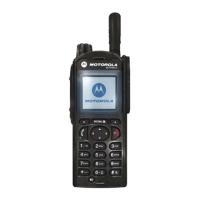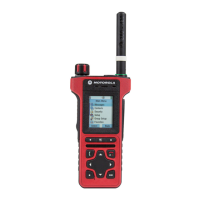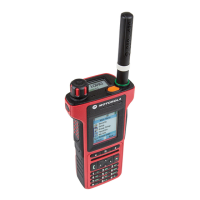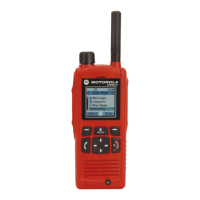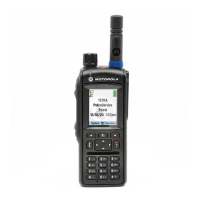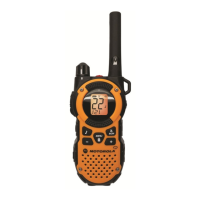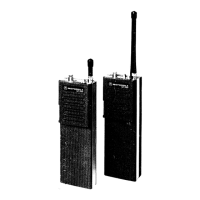High Assurance Boot
The radio has a facility that ensures that the code and data flashed in the radio is authentic and has not been altered.
The hardware forces the HAB module to run at boot time. The module checks if all software comes from a trusted
source. The radio is checking the signature of the code and data segments present in the radio using a public/private
key mechanism.
If the HAB authentication of the flashed software fails, it does not allow the radio software to run.
Packet Data
The radio provides, in the TMO, a TETRA bearer service for applications that use the IP protocol. This service is
available to external applications by connecting using the PEI.
The radio supports TETRA standard multi-slot packet data using the IP network layer protocol through Point-to-Point
Protocol (PPP), and TETRA SNDCP protocol. The IP connection is established between Terminal Equipment and
Mobile Terminal, allowing external applications to communicate with Terminal Equipment using predefined IP
addresses.
Note: This IP connection is referred to as the local link. The link established between the radio and the
SwMI is referred to as the wide link. When a wide link has been established, the radio is considered to be
in the wide mode.
Packet data applications reside internally, over UDP, or in an externally connected device connected via an 8-wire
RS232 data port in the radio. Communication to the external radio is initialized using AT commands. Once the
connection is established, the external application may request Point-to-Point Protocol (PPP) mode, and then operates
in PPP mode until the data connection is terminated. The radios can operate both on the single-slot packet data
channel and the multi-slot packet data channel.
The system provides point to point IP connectivity allowing the following datagram exchanges.
• Radio ←→ External Equipment (Terminal Equipment) (for example PC).
• External Equipment (Terminal Equipment) ←→ Network (through radio).
The radio supports only IP version 4 packets. The radio routes datagrams independently of the protocol sitting on top
of IP.
The radio supports an MTU of 1500 bytes.
The radio provides the best effort delivery service. However, if the delivery fails, the originating user application is
informed by sending back to Terminal Equipment an ICMP message, if possible.
The radio generates ICMP messages addressed to the Terminal Equipment in case of failed delivery due to the radio
environment. The delivery may fail due to, for example:
• no radio coverage.
• failed transmission.
• service interaction.
The packet data service PDCH access signaling has the same priority as circuit mode setup-related signaling. The
radio uses advanced link for PD transmission and supports advanced link flow control. The advanced link roaming, if
the advanced link is not disconnected between cells, is supported, where the SwMI supports it.
The radio does not support data compression. If an application attempts to negotiate data compression during context
activation, it is rejected. If a data compressed IP packet is received from the SwMI, it is silently discarded. The radio
supports IP header compression negotiation received from Terminal Equipment during PDP context activation, and
transparently transfers IP packets with the header compression between Terminal Equipment and the SwMI.
The packet data service employs the TETRA standard cell selection and re-selection. The packet data service is
suspended while the reselection is occurring, and resumes when the cell reselection procedure is complete.
Services and Features | 47
| | Send Feedback
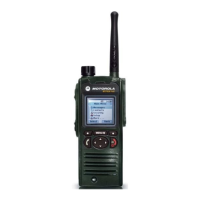
